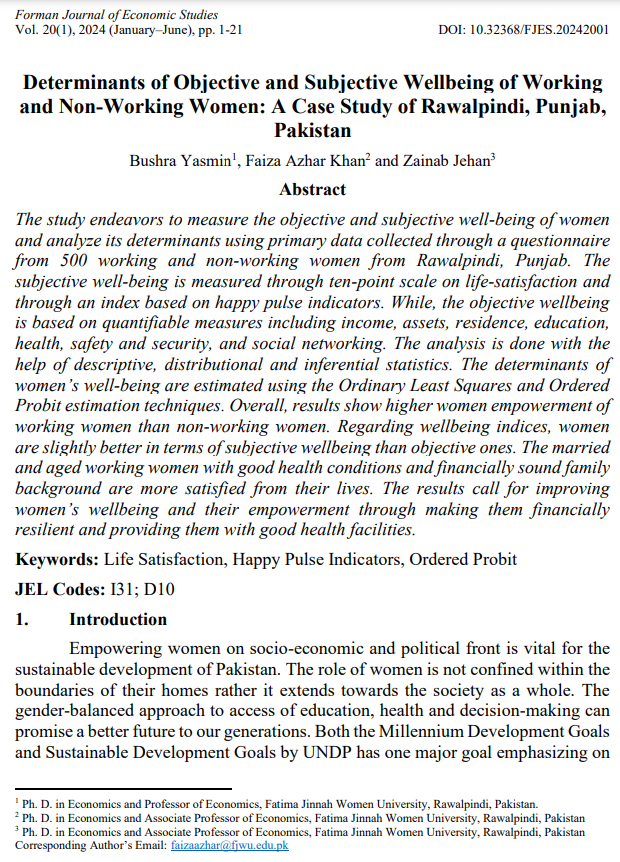Determinants of Objective and Subjective Wellbeing of Working and Non-Working Women: A Case Study of Rawalpindi, Punjab, Pakistan
Keywords:
Life Satisfaction, Happy Pulse Indicators, Ordered ProbitAbstract
The study endeavors to measure the objective and subjective well-being of women and analyze its determinants using primary data collected through a questionnaire from 500 working and non-working women from Rawalpindi, Punjab. The subjective well-being is measured through ten-point scale on life-satisfaction and through an index based on happy pulse indicators. While, the objective wellbeing is based on quantifiable measures including income, assets, residence, education, health, safety and security, and social networking. The analysis is done with the help of descriptive, distributional and inferential statistics. The determinants of
women’s well-being are estimated using the Ordinary Least Squares and Ordered Probit estimation techniques. Overall, results show higher women empowerment of working women than non-working women. Regarding wellbeing indices, women are slightly better in terms of subjective wellbeing than objective ones. The married and aged working women with good health conditions and financially sound family background are more satisfied from their lives. The results call for improving women’s wellbeing and their empowerment through making them financially resilient and providing them with good health facilities.





